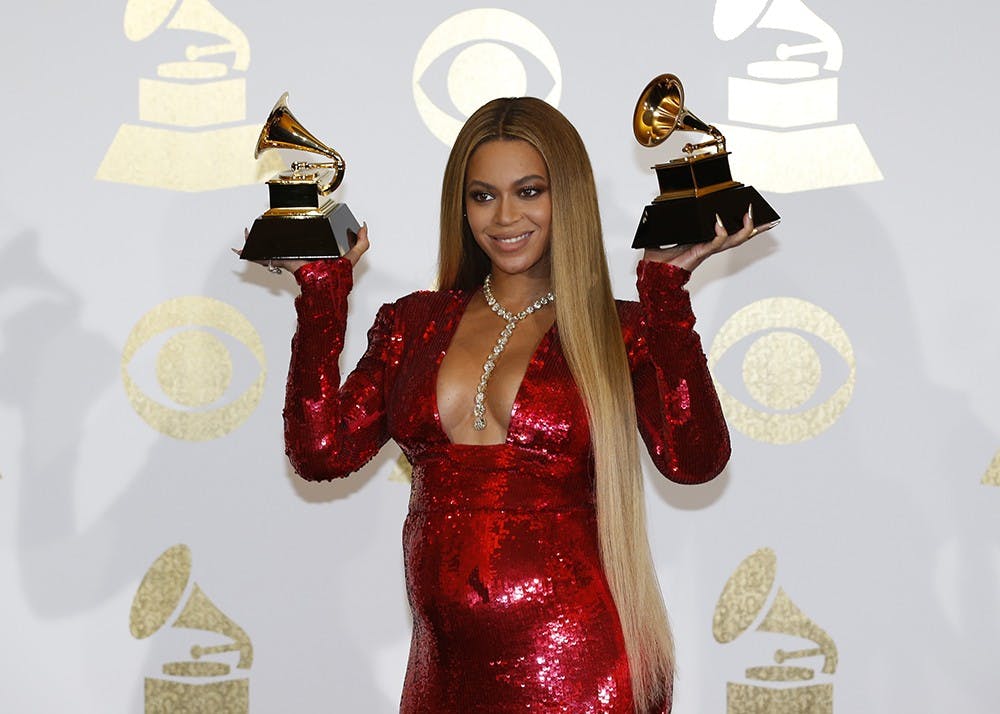When I first heard that Beyoncé was releasing a country album, I was skeptical. I hadn’t listened to much of her music beyond her older hits, knew very little about her and certainly didn’t consider her a country artist.
It doesn't take a very long look at this album, though, to find that Beyoncé’s country debut has some stunning endorsements. "Cowboy Carter" features some of the biggest names in-country music — icons like Dolly Parton and Willie Nelson. In “Smoke Hour II”, Willie opens his feature by saying, “Sometimes you don't know what you like until someone you trust turns you on to some real good shit.” That’s precisely how “Cowboy Carter” entered my life.
One of my best friends is about as close to a professional Beyoncé fan as you can get. After several car rides with him on aux, I gradually began to understand the hype. To my own surprise, I absolutely loved the album from start to finish.
At the Grammys on Feb. 2, Beyoncé won three categories: Best Country Album, Best Country Duo/Group Performance and, of course, Album of the Year.
I understand that music tastes are subjective, but the sheer amount of internet vitriol surrounding these wins has me wondering if we all even listened to the same album.
For me, what separates good music from exceptional music is the story behind it — and that’s exactly what makes “Cowboy Carter” so unique.
First, the album is a brilliantly crafted exhibition of Black history. One of the first songs that caught my attention was Blackbird, a cover of the Beatles’ classic. At first, its inclusion seemed unexpected. What I didn’t realize was that Paul McCartney originally wrote “Blackbird” in response to the U.S. civil rights movement, specifically inspired by the Little Rock Nine — the first Black students to desegregate Little Rock’s Central High School in 1957 following the Supreme Court’s landmark Brown v. Board of Education ruling.
With this context, Beyoncé’s rendition takes this song to a whole new level, especially with her striking lyric changes and production.
What I find most compelling about “Cowboy Carter” isn’t just the names we do recognize but the ones we might not. “The Linda Martell Show” pays tribute to one of country music’s most significant yet under-appreciated pioneers. Martell, who also appears on the track “Spaghetti,” made history in 1969 as the first Black female solo artist to perform at the Grand Ole Opry in Nashville, Tennessee. Her promising career, however, was tragically cut short.
After signing a record deal, Martell discovered that her music would be released under a label with a deeply troubling name: Plantation Records. Though uncomfortable, she felt she had little choice but to proceed. On the road, she endured severe discrimination and racial taunts from white audiences. When she later left Plantation Records due to its refusal to promote her music, she was effectively blackballed by the industry, ending her career far too soon.
While “Cowboy Carter” honors country music’s past and Beyoncé’s southern roots, it also looks toward the genre’s future. She collaborates with up-and-coming Black country artists like Tanner Adell, Brittney Spencer, Tiera Kennedy and Reyna Roberts on “Blackbird,” as well as Shaboozey on “Spaghetti” and “Sweet Honey Buckin’.” Her commitment to inclusion and uplifting Black country artists in a genre that has historically excluded them is a powerful statement — one that defines the album’s very purpose.
“Cowboy Carter” is more than just an album — it’s a reclamation, a tribute and a bold step forward. Beyoncé challenges the genre’s boundaries, redefines what it means to be country and amplifies the voices of those long overlooked. With its rich storytelling, historical depth and commitment to uplifting other artists, “Cowboy Carter” isn’t just a country album — it’s a cultural phenomenon.
So yes, she deserves those Grammys!
Ainsley Foster (she/her) is a junior studying elementary education.






